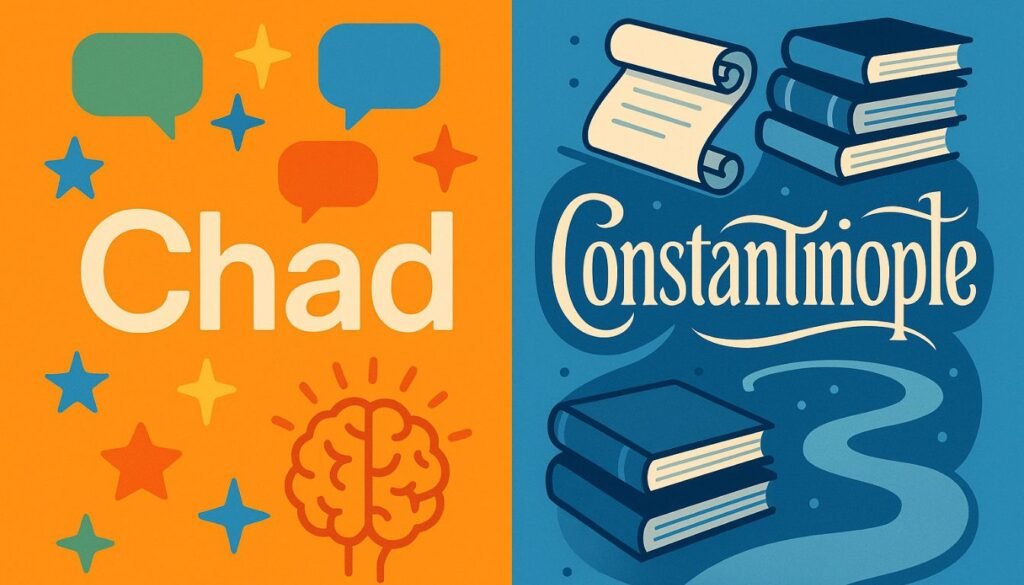
Hey, you ever meet someone with a super long name and think, “Man, I’ll never remember that”? Or maybe you stick with short nicknames because they’re easier to keep in your head? Names and how we remember them pop up everywhere, from chatting with new folks to picking a brand for your business.
So, do longer names actually make you fade from people’s minds quicker? Research says yeah, shorter ones often win out for quick recall, but it’s not a hard rule—stuff like what the name means or how easy it is to say can flip things around. Let’s break it down simple, like we’re just chatting over coffee.
Quick Key Points
- Shorter names stick better in your short-term memory because your brain grabs them faster—think how “Chad” is easier than “Constantinople.”
- Longer names can still shine if they pack in helpful details or tell a story, especially in branding where standing out matters.
- How easy a name rolls off the tongue often beats length; a smooth long name can outdo a choppy short one.
- In jobs or social settings, longer names might come off as fancier or more successful, helping them stick in a different way.
- It’s not black and white—your brain’s wiring, the context, and even culture mix into how names stick.
The Brain Basics
Your brain’s got this short-term memory thing, like a quick notepad for stuff you need right now. Studies show it holds onto what you can say or think through in about two seconds. Short names zip in easy, while longer ones take more effort and might slip away.
For example, folks in lab tests nailed more short words than long ones when everything else matched. It’s like juggling fewer balls—you’re less likely to drop them.
- Time’s the dealbreaker: Your short-term memory handles what you can say in about 1.5-2 seconds. Longer names eat up that clock, so they fade faster.
- Seeing vs. hearing: Even when you see names, short ones do better unless you’re muttering to yourself to block the mental loop—then the edge fades.
- Real names tweak it: Names like people or places follow this, but if they’re meaningful—like a descriptive game tag—they can stick even if they’re longer.
Some newer research on code names showed short names with clear info beat out longer vague ones, but adding useful details to a longer name didn’t hurt as much as you’d think. So, a name like “PixelWizard” might stick better than a random string, even if it’s got more letters.
Oh, and here’s a cool tip: repeating a name right away can mess with memory—better to pause for a few seconds after hearing it.
Branding: Short Wins, But Long Has Tricks
When you’re naming a company, short and snappy’s the way to go for getting remembered. Think big names like Apple or Nike—they’re quick to say and stick like glue. Short names, around 4-8 letters or 1-2 syllables, make it easier for folks to recall and even tie to better business success.
But longer names aren’t always a bust. In fancy markets, like luxury goods, a longer name can tell a story and grab attention.
- Why short rules: Our brains juggle just a few bits at a time, so quick names don’t overload us. People usually recall only a handful of brands per category, and short ones grab those spots.
- Digital bonus: Short names fit social media posts, boost search rankings, and are easy to type on phones.
- When long works: Longer names in luxury markets can weave a tale, making them memorable in a unique way. Or with clever wordplay, they spark curiosity and stick around.
Unique or misspelled long names can also stand out for branding, but they might confuse folks if too wild. And sounds matter—names with fun phonetics or certain starting letters are more memorable, no matter how long.
Jobs and Social Vibes
In real life, like job hunts, longer names can make you seem more put-together or unique, sometimes boosting your chances of getting hired. But in some cases, they might ding your pay, depending on things like gender or where you live—maybe because of bias or how formal you seem.
- Impressions matter: Longer names can make people think “successful” or “serious,” especially for guys, while short ones feel friendly and warm.
- Age plays a role: Older folks might struggle more with recalling names in general, but practice helps everyone.
- Visuals help: Using name tags or seeing a name written down ties it to a face, boosting recall no matter the length.
For kids learning to read or write, name length doesn’t slow them down—it’s all about how well they practice writing it. And if a name paints a picture, like a descriptive one, it’s more likely to stick even if it’s longer.
Wrapping Up the Chat
So, do longer names make you less memorable? Usually, yeah—shorter ones are easier for your brain to grab quick. But if a longer name’s got meaning, flows smooth, or tells a cool story, it can hold its own or even stand out more.
It’s all about the context—your brain’s limits, what you’re using the name for, and how it hits people. So, if you’re naming a kid, a business, or even your gaming tag, go short and sweet unless you’ve got a good reason to stretch it out.
Quick Comparison Table
| Factor | Short Names | Long Names |
|---|---|---|
| Memory Span | Easier to recall, higher accuracy | Harder, fade faster in quick tests |
| Branding | Great for quick recognition, boost success | Shine for storytelling in luxury, often shortened |
| Jobs/Social | Feel warm, approachable | Seem successful, may help hires but risk bias |
| Exceptions | Lose edge if clunky or vague | Win with meaning, wordplay, or smooth sounds |



